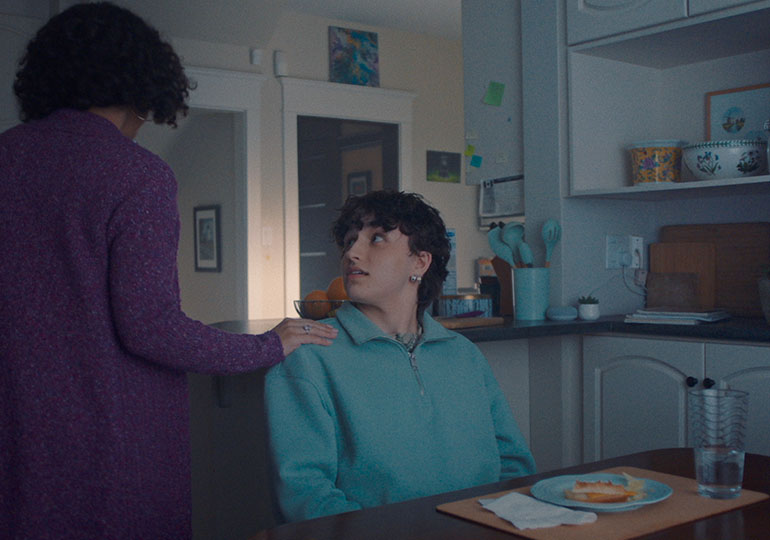Disclosures about suicidal thoughts or suicide attempts should always be taken seriously.
Growing up can be tremendously stressful. Family, school and social pressures can be overwhelming, especially when combined with the physical changes young people may be experiencing. When compounded by mental health struggles — such as depression — young people may be at a higher risk for suicide.
How can I tell if a young person is having suicidal thoughts?
The best way to find out if a young person is having suicidal thoughts is to ask them directly. It’s common to worry that talking about suicide will give someone the idea, or increase the likelihood that they’ll have thoughts of suicide. However, neither of these notions is true. In fact, asking directly about suicide lets a young person know they can talk to you about the topic.

Suicide: Important things to know
Factors, warning signs and tips to more openly talk about suicide.
There are some common warning signs that may suggest a young person is at risk for suicide. Youth who are thinking about suicide may exhibit some or all of the following behaviours. They may:
- talk about suicide thoughts or actions
- seem preoccupied with death, dying and/or suicide (e.g. in writing or drawings)
- have previously attempted suicide
- try to give away meaningful belongings
- lose interest in friends, school, sports or hobbies
- show signs of depression or hopelessness
- have recently lost a friend or family member — in particular a parent — to suicide
- show changes in their typical behaviour, including hygiene, eating, sleeping or mood
If a young person describes any type of plan to attempt suicide, the method they would use to die by suicide or a timeline of when they would act, it’s important to get help right away. Stay with the young person (or find a safe adult who can), let them know you’re concerned and make a plan together to call 911 or the emergency services in your area.
Talking to a young person about suicide
Here are some tips for talking to a young person about suicide:
Do…
- Start gently: mention the changes you’ve noticed in their behaviour: “I noticed you’re spending a lot of time alone lately — is something bothering you?”
- Be direct: ask the young person if they’re considering suicide: “Are you thinking about killing yourself?” If the answer is “yes,” find out if they have a plan: “How are you planning to do it?” The more detailed the plan, the higher the risk.
- Remind them you care: people who are thinking about suicide are often worried that they’re a burden, so it’s important to communicate to them that you care about them and want to help them through this difficult time.
- Tell them help is available, and that you have hope for them: tell them that things can get better, and that you’ll support them in finding help and working toward learning skills to take care of their mental health. To start, you can make an appointment with your family doctor, visit a children’s mental health centre or use Resources Around Me to search for other support options near you. You can also encourage them to contact Kids Help Phone.
Don’t…
- Judge: let the young person do the talking and try to avoid interrupting as they share their story.
- Talk too much: don’t try to fill all the silences in the conversation. The pauses may result in the young person opening up more.
- Minimize: avoid minimizing the young person’s feelings by saying things like, “Life isn’t fair,” or “It’ll pass.”
If a young person has a plan to die by suicide
Do not leave the young person alone. It’s important to stay with the young person as you work together to connect with support in your community (e.g. you can call 911 or the emergency services in your area). If you can’t stay with the young person, ask another safe adult (e.g. a relative, friend, Elder, etc.) who’s willing and able to stay with them and help them stay safe.
Getting help for yourself
Knowing that a young person in your life is thinking about suicide can be incredibly difficult. As a parent or caregiver, you may feel judgment or blame for what the young person is going through, or you may feel that it’s your fault. It’s not. Avoid the temptation to criticize or blame yourself. Support is crucial during this time. It’s important to create a network of trusted people you can talk to about your feelings, such as friends, family members, spiritual leaders, counsellors, support groups or anyone else who can listen and assist. You don’t have to go through this alone.
Help is out there
If you know a young person who’s struggling with a problem, big or small, you can encourage them to contact Kids Help Phone for support. We’re available 24/7/365.
Brought to you with the support of:










